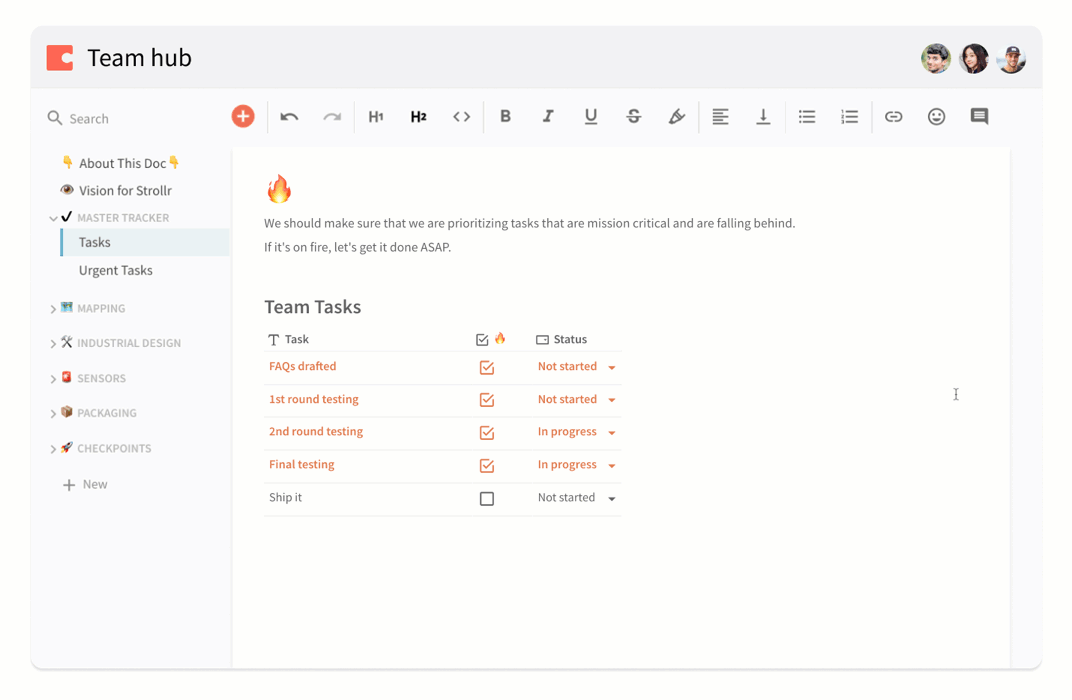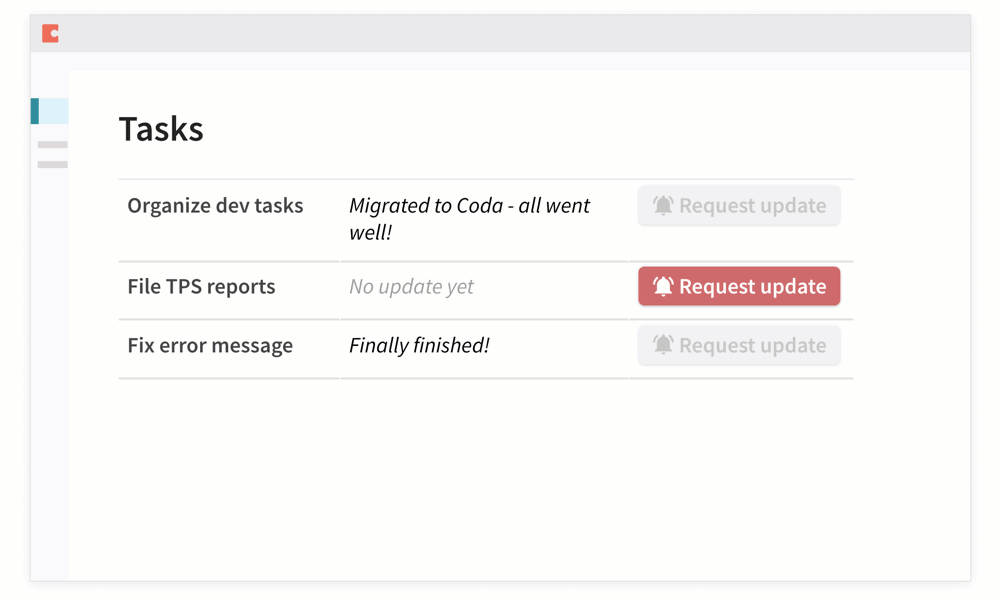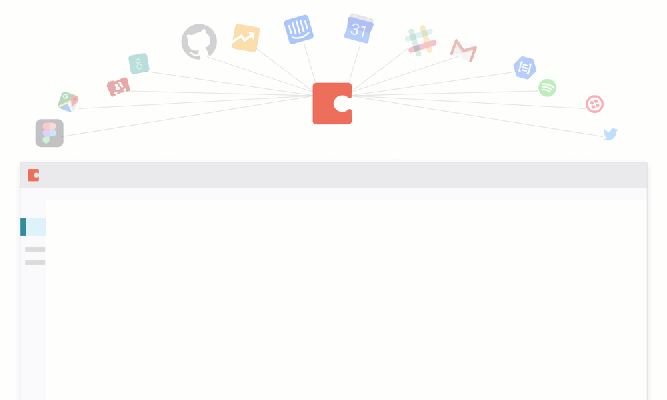Coda, the smart collaborative document editor that breaks down the barriers between documents, spreadsheets, databases and presentations, is today launching one of its most important updates since its launch in 2017. With this update, users will be able to pull in data from third-party sources and send out messages to their teams on Slack or by SMS and email. With this, the company’s take on building living documents that are essentially small apps is now really taking shape.
“Coda is a new type of documents,” Coda co-founder and CEO Shishir Mehrotra told me. “It combines the best of documents, spreadsheets, presentations, applications into a new surface. The goal is to allow anybody to build a doc as powerful as an app.” That means you can use your inventory spreadsheet to build a small inventory management app, for example, that lives entirely in a tabbed Coda document. Mehrotra noted that many businesses essentially run on documents and spreadsheets, but they don’t have the ability to use that data to its full extent.

One part of these new integrations, which Coda calls “Coda Packs,” is that you now have the ability to extend your spreadsheets with data that you typically would have had to pull in by hand — something few people are likely to do. That may be stock, sports or weather data, but also open GitHub requests, Intercom tickets and data from your Google Calendar. But there also is a second set of integrations that now let you push out information to Slack and Twilio. In addition to these, Coda supports Figma, Greenhouse, Instagram, YouTube, Walmart Shopping and Wikipedia.
What’s cool here is that Coda lets you build buttons that can combine dozens of different actions. Maybe you have a spreadsheet about an upcoming event with the phone numbers of a dozen friends and want to text them all a reminder? You can now build a button that talks to Twilio and sends an SMS to all of those who haven’t RSVPed yet. And with the weather integrations, you can tell them what the temperature will be.
I’m typically rather skeptical when I see a company that tries to reimagine a well-established concept like a text editor or spreadsheet. And who knows if Coda will be a commercial success. But I can see how the overall concept makes sense (especially thanks to the ability to add a formula anywhere in a document). It’s worth noting, though, that Microsoft is also moving in this direction with the ability to pull third-party data into Excel (though mostly under the guise of artificial intelligence). What Microsoft doesn’t really do as smoothly as Coda is combine all the different document types in one.

